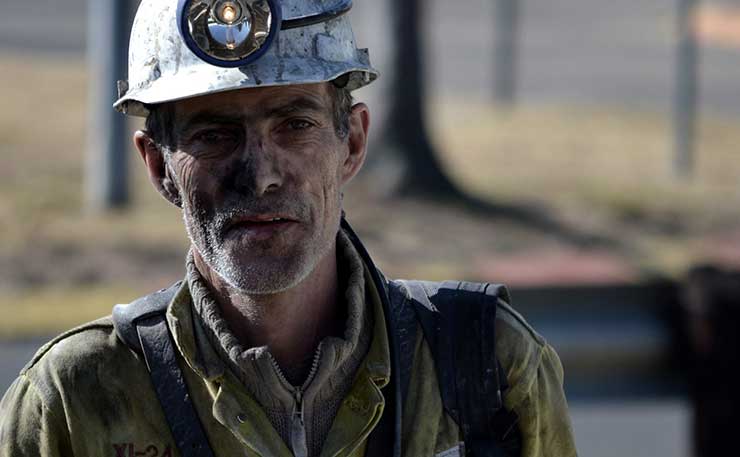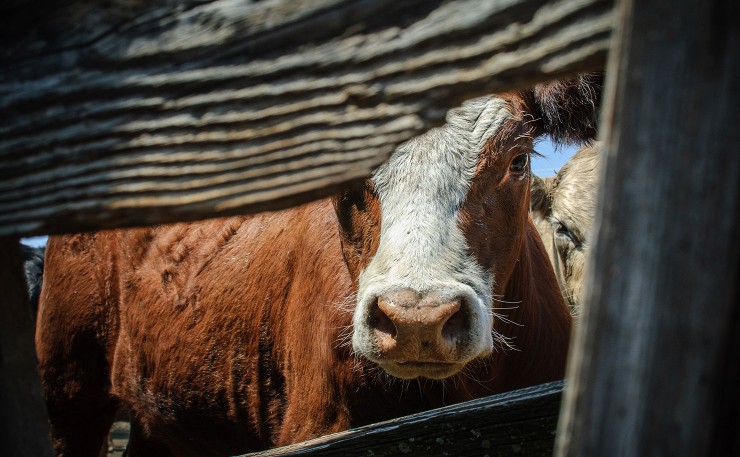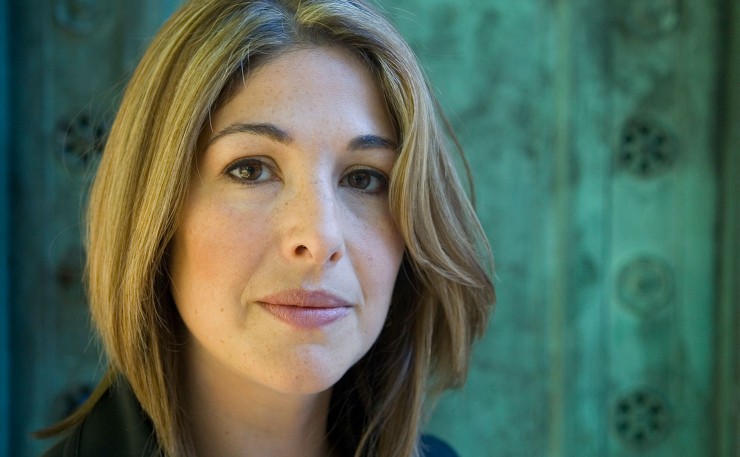She’s a powerful and passionate writer and activist, writes Geoff Russell. But she’s missed the mark on the causes of cancer and dispossession.
Almost since the beginning there was “the left” and “the right”. We are talking politics here, not handedness. “The left” was always defined roughly as being of the workers while “the right” belonged to the bosses.
The workers inhabited the dark satanic mills of William Blake’s industrial revolution; they lived in poverty and had short filthy wretched lives. The bosses of the industrial revolution were in some sense a new group historically. They were, as they still are, the middle class; their job was traditionally to generate wealth for the idle rich.
“Environmentalism” has also been around for a very long time but was mostly the domain of the idle rich. Royalty, frequently claiming a divine mandate, shut the peasants out of hunting grounds to preserve what they revealingly called game.
This kind of environmentalism goes back over a thousand years. It’s based on a clear understanding that the natural increase in bears, stags, lions or even swans or ducks is always low in comparison to the food needs of the masses. Let them eat bread!
In Australia, a few thousand hunters can bag 2-4 kilos of duck meat each year without wiping out the species, but do the math on 23 million people trying to consume ducks like they do chickens, about 5 to 7 times a week.
Put simply, hunting is only ever sustainable when hardly anybody does it. Royalty has always known this and can be counted among the first environmentalists.
The somewhat strange emergence of green-left
The concept of “green-left” is a somewhat strange modern hybrid. Environmentalism has always been about prohibiting or restricting the exploitation of natural resources while the left has been about sharing them equitably. A consistent green-left ethos requires simultaneous restrictions on exploitation while ensuring the fruits of what little exploitation is allowed are shared equitably.
The place of animals in this picture is highly ambiguous. The Royals love a heath or forest replete with animals, but mainly so they can either shoot them or have their dogs rip them to pieces. The similarity of the words peasant and pheasant is perhaps no coincidence. The idea that animals might be more than mere resources is alien to early environmentalism and still to many greens; whether with or without a capital ‘G’.
Enter Naomi Klein
Which brings us to Naomi Klein. Definitely of the left and a powerful advocate for the oppressed; at least when they have two legs and an upright stance. Her first book, No Logo, was a powerful polemic against the branding and bullshit of the modern corporate culture.
This exploitation of our seemingly innate parochial tribalism infects everything from popular music, including great pseudo-rebel brands like the Rolling Stones, any book you can buy at an airport, and extends through to everyday items like white goods, gaming and the brilliantly marketed misnamed low-calorie “energy” drinks.
I remember cheering loudly as I read No Logo a couple of years after it came out in 1999. Klein’s modus operandi is simple and powerful, pick a villain and eviscerate them with wit and words. Villains usually come with victims and Klein tells their story with considerable outrage and compassion.
Klein is now getting heavily involved in climate change politics, writing one of her characteristically large books on the topic a few years back: This changes everything: Capitalism Vs the Climate.
Here’s a shorter taste of Klein in full flight. It’s an essay adapted from her 2016 Edward Said London Lecture. The essay’s central theme is how Said, a Palestinian born Professor of Literature, thought of environmentalism as a bourgeois playground and missed what Klein thinks is the powerful connection between environmental destruction and oppression.

I think she’s a bit rough on Said; he died in 2003, well before many non-scientists realised the deep gravity of climate destabilisation. The penny hadn’t dropped then with Tim Flannery, for example; or I think, Klein herself. It was 2004 before the penny started falling with me.
But even if Said had realised the seriousness of climate destabilisation, would he have agreed with Klein on the connection between oppression and trashing the climate? Perhaps Klein’s connection is simply the result of moving outside her area of expertise. Science changes everything.
Klein is used to identifying protagonists and telling their stories with events and anecdotes. Science is about numbers, evidence and carefully constructed arguments. Klein’s not comfortable with any of the three.
For example, Klein wants to assert that our fossil fuel problems are the result of our othering of miners and Indigenous peoples. Meaning that we treat them as less than human to justify their exploitation.
Did coal and oil mines displace Indigenous people? Certainly, but were they the biggest driving force or simply a minor footnote in a much more general process?
It’s easy enough to check. I’ll illustrate with some Australian numbers, but they illustrate general principles. We crop about 20 million hectares in Australia and graze another 70 million hectares of improved pasture. Cattle and sheep also graze another 330 million hectares of natural vegetation.
Keep in mind that the entire area of Australia is about 770 million hectares. We also have a couple of million hectares of plantation forests. And our mines? All up, not just coal, they occupy a few tens of thousands of hectares and much of that isn’t the prime area with surface disturbance. So… which activities have done most to dispossess Indigenous people? Mines of any description, or cropping or grazing?
The ratios are similar the world over. Mines are tiny, cropping is big and grazing is huge. Indigenous people have been dispossessed by the sheer weight of numbers of non-Indigenous people and the fact that the latter all eat; with the biggest dispossessors being those who indirectly appropriate the most land… meaning meat eaters… which probably includes both Klein and Said (as far as I can make out).
Now think about the other part of her claim. Coal mining is definitely a filthy business, but a damn site healthier than what it replaced… chopping and burning wood. And what did they use to light the lamps of Europe before oil?
They used whale oil.
Perhaps Klein would like us to return to men in little boats throwing sharp pointy things at whales, but I’d rather drill holes in the ground. And wood isn’t dead yet. Some 3 billion people still cook with solid fuels; mostly wood, but also cow dung or charcoal or even coal itself.
Wood smoke indoors shortens lives and kills children. The death toll from household air pollution is about 4.3 million people a year; and the suffering on top of that is immense. The upside of a coal industry, particularly when it became used to generate electricity, is that by replacing wood, a large number of people benefitted from the toil of a few.
The other great thing about coal mining is that it’s a big compact centralised industry; which means it’s easier to regulate. Think about the difference between a textile factory with a union and regulation compared to people working at home. Highly distributed industries are tough to regulate. Globally between 1990 and 2013, coal production trebled, but deaths from black lung dropped from 29,000 to 25,000.

Black lung is the common name for CWP (Coal workers’ pneumoconiosis). It’s the biggest killer of coal miners and is caused by breathing coal dust. But when you mine coal from big open cut holes while sitting in massive air-conditioned machines, the problem can be eliminated; and the pay is better than many other jobs. But it does take good unions and continued vigilance.
There were 6 cases of CWP in Queensland between May 2015 and February 2016 which prompted calls for action in the Medical Journal of Australia. Science changes everything.
Klein can point to coal mining abuses in various parts of the world, but ignores the benefits of coal over what went before. I don’t know of any studies on how many lives coal has saved in replacing wood, but there are studies on the numbers of premature deaths nuclear power has prevented in replacing coal… about 1.8 million. The number of lives coal has saved by replacing wood would be far greater.
Klein is so closely focused on oppression by big business that she missed the much bigger cause of Indigenous displacement and thus all the subsequent domino progression of problems. She misses that large industries can be regulated and improved and that in many countries that’s exactly what has happened.
Similarly, when she talks about health, she is so focused on laying out her argument that she doesn’t bother to check the facts. Consider:
“Turning all that coal into electricity required another layer of othering too: this time for the urban neighbourhoods next door to the power plants and refineries. In North America, these are overwhelmingly communities of colour, black and Latino, forced to carry the toxic burden of our collective addiction to fossil fuels, with markedly higher rates of respiratory illnesses and cancers.”
Where’s the proof? For females in the US, whites have a higher rate of cancer than blacks, with Latino’s significantly lower again and American and Alaskan native Indians lower still! For men, blacks have the highest cancer rates, with whites a little lower and again Latinos and American and Alaskan native Indians lower again.
There may be pockets around power plants where rates are a little different but where’s the data?
As for respiratory diseases, the biggest most serious of these is COPD (chronic obstructive pulmonary disease) and yes, rates of COPD are higher for non-whites. But what’s the problem, is it mining?
Here’s what a major 2013 US study says: “Because smoking is the dominant risk factor for COPD and contributed to about 80% of COPD deaths in 2000 to 2004 much of this disease is potentially preventable.”
With regard to cancer, Klein makes the same mistake made over many decades by the anti-nuclear movement. They seized on the fact that radiation can cause cancer and entirely ignored more recent findings that radiation is a much weaker cause of cancer than lifestyle factors like smoking, alcohol, red and processed meat, and being fat and inactive.
Climate science is a little different from some sciences in its emphasis on ranking causes. Plenty of science is focused on tiny details but the climate gurus have to look at a vast array of quite different problems and try to rank them.
Klein cites a paper by Hansen on sea level rise; but when she starts discussing climate science she begins with a faux pas.

“Fossil fuels aren’t the sole driver of climate change – there is industrial agriculture, and deforestation – but they are the biggest.”
Industrial agriculture is a very misleading description of a major part of the climate problem. A more accurate description would be simply “methane from sheep and cattle”.
The 1.4 billion cattle on the planet are unprecedented and have driven a considerable component of the deforestation as well as emitting large amounts of methane as they digest their feed. And what about the “industrial” adjective? Cattle in feedlots generate less methane than cattle eating grass. Industrial methods of animal production are horrid for the animals but far less bad for the climate.
Conclusion
Klein assumes that the cause of the dominance of fossil fuels in our energy supply is otherness, oppression and racism. But I’d rank ignorance very high up on the list of reasons. Klein’s shorter essay illustrates her ignorance about cancer and other health issues and this ignorance very clearly misinforms her narrative.
If you want to take part in charting a course to reduce climate destabilisation, then sympathy with the oppressed isn’t enough. Klein’s essay ignores nuclear power and the obvious role of the anti-nuclear movement in the dominance of fossil fuels.
We could have gotten rid of the fossil fuel industry decades ago, back when climate change was first recognised as a serious issue by the world’s climate scientists; the 1990s. But we didn’t.
The fossil fuel industries thrived because they had no competition and were far better than wood. They were safer, cleaner, and yes, even healthier. They thrive today because people like Klein look at nuclear power without bothering to compare its health and safety record with anything else. Not coal, not wood, not anything.
They just say “Oh gosh, this is scary, radiation can damage your genes and nuclear plants are … well … just plain big and built by big companies!”
As it happens food is also energy and it has an environmental impact and it also damages your genes; meaning that some foods and some diets can cause cancer. Foods can shred DNA … quite literally … causing single and double strand breaks; just like radiation; only they are far more potent.
But ignorance about the big causes of cancer meant that fear of the little causes proliferated in a knowledge vacuum, and any nuclear project was hit by demonstrations and legal challenges and a rolling barrage of increasingly bizarre safety requirements.
So the big energy companies said, “Gosh nuclear is hard, let’s just keep on with coal”. And everybody relaxed and got on with building bigger houses and writing bigger books and going on more holidays and generally having a real nice time. Even the coal miners.
Donate To New Matilda
New Matilda is a small, independent media outlet. We survive through reader contributions, and never losing a lawsuit. If you got something from this article, giving something back helps us to continue speaking truth to power. Every little bit counts.





